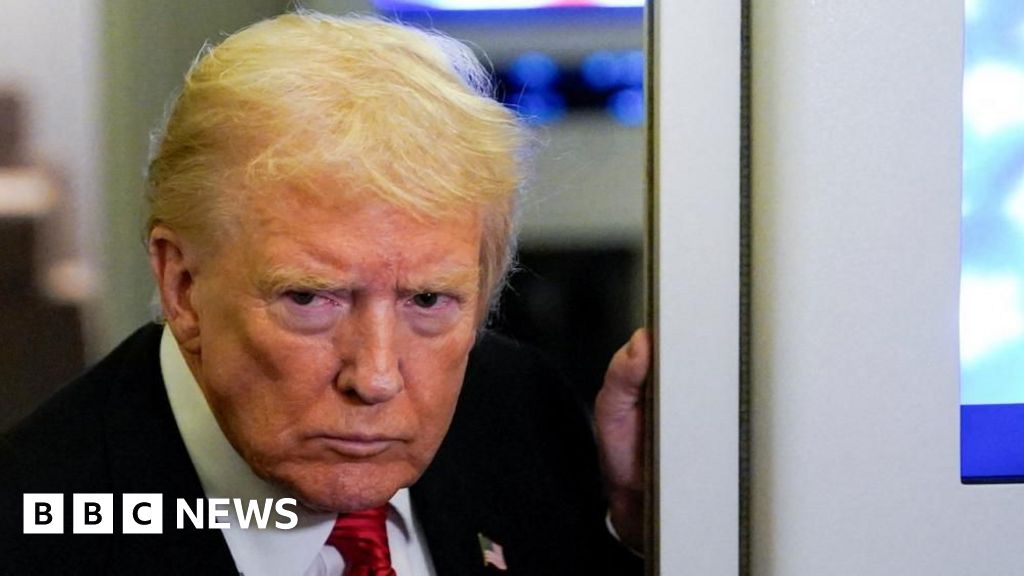Are Christians being persecuted in Nigeria as Trump claims?

Claims of Christian Persecution in Nigeria Under Scrutiny Amid US Political Rhetoric
Claims of widespread and systematic persecution of Christians in Nigeria, amplified by some US politicians, are facing increased scrutiny. These claims, which have included allegations of genocide and prompted strong rhetoric from figures like former US President Donald Trump, are being challenged by the Nigerian government and security analysts who argue that the violence is more complex than a simple religious conflict.
Divergent Narratives on Violence in Nigeria
For months, voices in Washington have asserted that Islamist militants are deliberately targeting Christians in Nigeria. These claims gained further traction after Trump threatened to intervene in Nigeria "guns-a-blazing" to stop the alleged killing of "record numbers of Christians." However, the BBC has found that the data underpinning these claims are difficult to verify, raising questions about the accuracy and potential politicisation of the narrative.
The Nigerian government has vehemently denied these allegations, describing them as "a gross misrepresentation of reality." While acknowledging the deadly violence in the country, officials maintain that "terrorists attack all who reject their murderous ideology - Muslims, Christians and those of no faith alike."
The Source of the Data: A Contentious Issue
Much of the data cited by US politicians originates from the International Society for Civil Liberties and Rule of Law (InterSociety), a Nigerian non-governmental organisation. InterSociety claims that over 100,000 Christians have been killed in Nigeria since 2009. However, the organisation's methodology and lack of transparent sourcing have drawn criticism.
InterSociety admits that it does not provide an itemised list of sources, making it difficult to independently verify the total number of deaths it reports. The organisation has stated that it relies on adding "summary statistics" from past reports to new findings. However, a BBC analysis of the sources cited by InterSociety in its reports did not support the published figures. For example, in its 2025 report, InterSociety cited a number of media reports, but in about half of these cases, the original news stories did not mention the religious identity of the victims.
Expert Perspectives on the Nature of the Conflict
Nigerian security analyst Christian Ani argues that while Christians have been attacked, it is part of a broader strategy of creating terror and not a deliberate targeting of Christians. He emphasized the diverse range of security crises facing Nigeria, stating that they have different causes and should not be conflated.
Confidence McHarry, a senior security analyst at Africa-focussed consultancy SBM Intelligence, echoed this sentiment, highlighting the role of ethnic tensions and competition over resources in the violence. "It might be ethnic in nature - they're seeking to grab lands, they're seeking to expand territory, but the more they displace communities and the more they attack worship centres, the more these things tend to get looked at in that light," she said.
The Fulani Herders Controversy
The inclusion of Fulani herders, a predominantly Muslim ethnic group, as "jihadists" by InterSociety is also a source of contention. While conflicts between herders and farming communities, both Christian and Muslim, have resulted in numerous deaths, many researchers argue that these clashes are primarily driven by competition over land and water resources, rather than religious motivations.
Alternative Data and Analysis
Data from other sources, such as the Armed Conflict Location & Event Data Project (ACLED), present a significantly different picture. ACLED, which closely monitors violence in West Africa, reports that just under 53,000 civilians – Muslims and Christians – have been killed in targeted political violence since 2009. Furthermore, ACLED identified 384 incidents where Christians were specifically targeted from 2020 to September 2025, resulting in 317 deaths, a small proportion of the total number of fatalities.
These discrepancies highlight the challenges of accurately assessing the nature and scale of the violence in Nigeria and underscore the importance of relying on verified data and nuanced analysis.
Historical and Current Context
Nigeria, Africa's most populous nation with over 220 million people, is roughly evenly split between Muslims and Christians. The north is predominantly Muslim, while the south has a larger Christian population. The country has a long history of inter-religious and inter-ethnic tensions, exacerbated by poverty, inequality, and political instability. Boko Haram, a jihadist group active since 2009, has concentrated its activities in the north-east, while other jihadist groups and criminal networks operate in various parts of the country.
The debate over Christian persecution in Nigeria is taking place against the backdrop of these complex historical and current realities, raising concerns about the potential for misinformation and political manipulation to further inflame tensions and undermine efforts to promote peace and stability.
Originally sourced from: BBC News Africa
